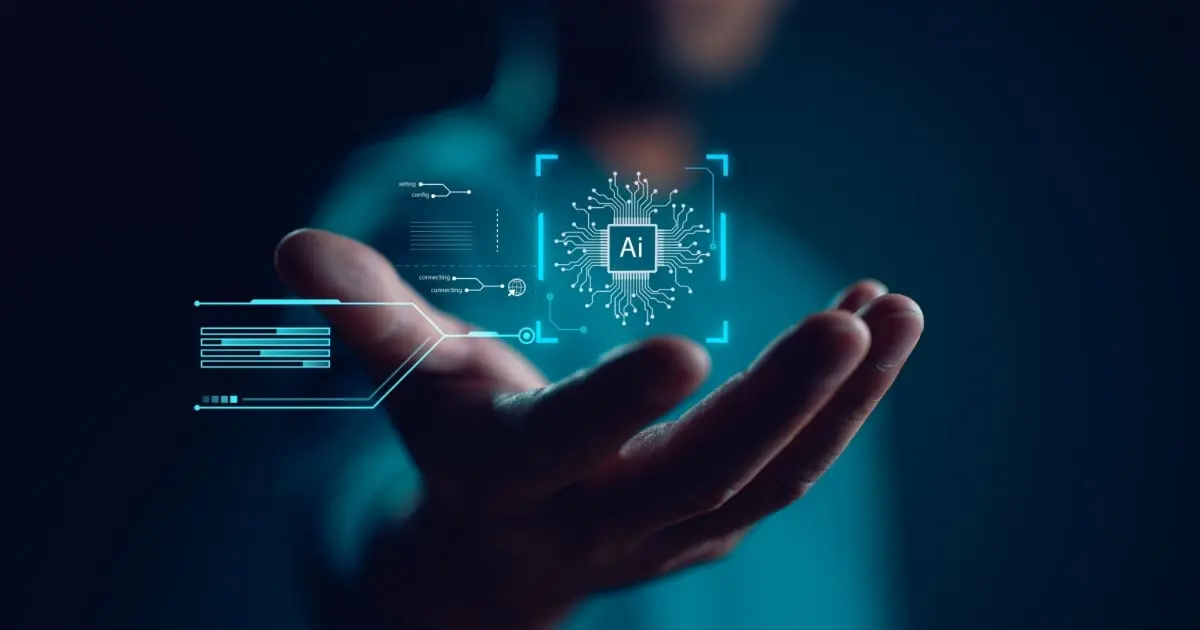Employee training is the cornerstone of any organization, knitting competence, innovation, and growth into the very essence of the company. How many times have you pondered the significance of employee training in today’s fast-paced business landscape?
In today’s rapidly changing business landscape, where new technologies and skills emerge almost daily, ensuring your workforce is equipped with the right knowledge and expertise is no longer just a luxury—it’s a necessity. The LinkedIn Workplace Learning Report 2023, states that 89% of learning and development (L&D) experts concur that equipping employees with skills for both the present and the future will help navigate the rapidly changing nature of work.
But here’s where things get truly fascinating: Artificial Intelligence (AI), the transformative force that’s revolutionizing not only the way we work, but also the way we learn. AI isn’t just another buzzword anymore; it’s the catalyst that’s reshaping the entire paradigm of employee training. In this blog, we’ll delve into AI’s significant role in employee training, shedding light on how it’s powering the evolution of modern businesses and learning environments.
The Current Landscape of Employee Training
In employee training, traditional methods have long been the bedrock for imparting knowledge and skills. These methods, which often include in-person workshops, printed materials, and classroom-style lectures, have served organizations for decades. However, they have a unique set of restrictions. Traditional training can be time-consuming and inflexible, making it challenging to keep up with the ever-evolving demands of the modern business landscape.
Today, one of the biggest issues facing enterprises is the requirement for efficient training. Employee upskilling and reskilling are becoming more and more necessary as industries continue to change. Organizations are searching for strategies to maintain a staff that is capable of quickly adjusting to new circumstances. This is where the limitations of traditional training methods become apparent.
What Is the Role of AI in Employee Training?
AI in employee training refers to enhancing the learning process via the use of intelligent technologies such as machine learning and natural language processing. These technologies enable the creation of adaptive and personalized training programs, taking learning to a whole new level.
Integrating AI into learning initiatives and strategies can streamline the L&D processes and foster a culture of continuous learning. While AI may eliminate certain roles, it will also create new opportunities for growth and innovation.
AI-Enhanced Learning: Benefits of Using AI in Employee Training
Regarding employee training, AI opens up possibilities that traditional methods cannot match. Here, we’ll explore the multifaceted advantages of employing AI in employee training:
- Personalization: Traditional one-size-fits-all training approaches are no longer adequate to meet the unique learning needs of each employee. Instead, training should be tailored to each learner’s unique learning journey. AI in employee training is akin to having a personal tutor for every employee. It customizes the learning experience to each individual’s learning needs, preferences, and proficiency level. With this degree of customization, employees are guaranteed to see the appropriate content at the appropriate moment, which increases retention and engagement.
- Efficiency: AI tracks staff development and grades tests, among other mundane administrative chores. This automation reduces the administrative burden on instructors and ensures that feedback and results are delivered promptly. Furthermore, training programs become more efficient, allowing instructors to focus on high-value tasks, like content creation, innovative learning strategies, and guiding employees.
- Scalability: Traditional training methods can be constrained by the availability of resources, including instructors and physical training materials. AI-driven training programs can scale easily to accommodate a growing workforce. Whether you have ten employees or thousands, AI can deliver consistent, high-quality training experiences, ensuring no one is left behind.
- Real-time Feedback: One of the many amazing benefits of artificial intelligence is its capacity to deliver real-time feedback. It doesn’t merely deliver content; it interacts with employees, providing instant answers to questions and offering suggestions for improvement. This feature is especially valuable in skill-based training, where immediate feedback is essential for skill development and refinement.
- Continuous Learning: With AI, learning doesn’t stop when the training program ends. AI-driven training programs can continuously evaluate worker performance and modify the curriculum as necessary. If an employee excels in one area but struggles in another, AI adjusts the learning path to address their needs. Spaced repetition algorithms can remind employees of previously learned material at optimal intervals to prevent knowledge decay over time. This encourages an ongoing learning culture within the company.
- Cost-Efficiency: AI streamlines training processes, reducing the costs associated with traditional methods. There’s no need for printed materials, physical spaces, or additional travel expenses. This cost-effectiveness ensures that organizations can allocate their training budgets more strategically.
- Predictive Analysis: AI’s data-driven approach provides organizations with valuable insights by analyzing vast amounts of data. It can track employee progress, identify areas of improvement, and help organizations make data-informed decisions regarding their training programs. This predictive approach helps to forecast industry changes and employee skill requirements. Furthermore, these insights lead to better training outcomes and improved business performance.
- Global Accessibility: AI-powered employee training is not bound by geographical constraints. In an increasingly globalized world, AI-powered training programs are accessible anywhere and anytime. This is especially crucial for businesses with staff that are dispersed throughout the globe or that work remotely. Employees can engage in programs and obtain training materials from any location, promoting accessibility and diversity. These programs cultivate consistency in training and help maintain uniform skill standards across the organization, regardless of where employees are based. Furthermore, AI makes it possible to deliver training content in multiple languages and adapt it to different cultural contexts, further enhancing its global accessibility.
Overcoming Challenges and Concerns
While the benefits of AI in employee training are substantial, it’s important to address concerns. Data security is a common worry when implementing AI in training and development programs. However, with proper safeguards and encryption measures, data can be protected.
Additionally, according to Forbes Advisor, 77% of respondents said they were worried AI might result in job losses in the near future, demonstrating a general fear about how technology would affect employment prospects. This issue emphasizes the necessity of integrating AI in employee training with balance.
Job displacement is a concern, but it’s crucial to understand that AI is designed to enhance, not replace, human instructors. It can assist and supplement human trainers, leading to more effective learning. By emphasizing the collaborative role of AI alongside human trainers, organizations can help alleviate concerns and pave the way for a more harmonious adoption of AI in employee training.
Implementing AI in Your Employee Training Strategy
So, how can organizations integrate AI into their employee training strategies effectively? It starts with careful planning and consideration of the workforce’s specific needs. Identifying the right AI tools and platforms is crucial. Businesses should also spend money on teaching employees how to utilize AI efficiently and keeping an eye on how it affects student learning.
In a nutshell, AI embodies a groundbreaking role in employee training. By providing individualized, effective, and scalable learning experiences, it overcomes the drawbacks of conventional training techniques. While AI can be a useful tool to supplement human educators, it cannot completely replace them.
Connect with our L&D experts to leverage AI to unlock your workforce’s full potential and navigate the ever-evolving business landscape with agility.




